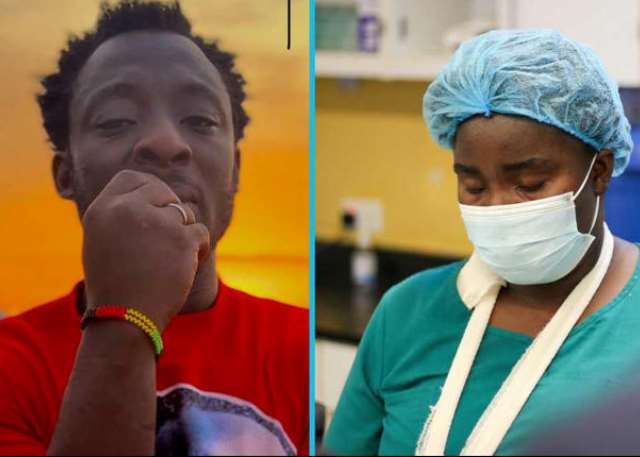The investigative committee tasked with probing the alleged assault of a nurse at the Greater Accra Regional Hospital has unveiled a comprehensive report, exposing critical deficiencies in security protocols, staffing levels, and the overall delivery of emergency care at the facility. The report, presented on August 27, 2025, by the committee’s chairman, Dr. Lawrence Ofori-Boadu, detailed the medical assessment of the nurse, Ms. Rejoice Tsotso Bortei, and highlighted significant systemic gaps that compromise the hospital’s ability to effectively manage emergencies. While the medical records did not corroborate Ms. Bortei’s claims of a fracture or dislocation, the committee’s findings underscored the urgent need for sweeping reforms to address the underlying vulnerabilities that contribute to such incidents.
The committee’s investigation revealed a glaring inadequacy in security provisions within the emergency department. The report highlighted the alarmingly low deployment of only one private security guard per 12-hour shift, despite the constant influx of patients and visitors. This inadequate security presence is further compounded by the remote location of the hospital’s police post, necessitating reliance on the Adenta Police Command during critical situations. This dependence on an external force introduces delays in response time and compromises the safety and security of both staff and patients in emergent circumstances. The report emphasizes the urgent need to bolster on-site security measures to prevent future incidents and ensure a safe environment for all.
Furthermore, the committee unearthed a severe shortage of medical personnel within the emergency unit, significantly impacting the quality and efficiency of care. In August, the unit operated with a skeletal crew of just one doctor per shift and a single specialist per day. Although seven doctors and two specialists were nominally assigned to the unit, their consistent unavailability created a chronic staffing crisis. Similarly, the nursing staff faced significant shortages, with only 54 of the 88 assigned nurses present at their posts. The absence of 34 nurses, attributed to various reasons, placed an undue burden on the remaining staff and compromised their ability to provide adequate care. This chronic understaffing creates an environment ripe for errors and delays, jeopardizing patient safety and contributing to staff burnout.
The committee’s investigation also uncovered a critical deficiency in the availability of essential diagnostic equipment. Key diagnostic tools, including X-ray, CT scan, and MRI machines, were found to be non-functional. This breakdown of crucial equipment led to significant delays in diagnosis and treatment, often necessitating referrals to external facilities. These referrals not only place additional strain on the already overburdened emergency care system but also subject patients to unnecessary inconvenience and potential delays in receiving critical care. The unavailability of these essential diagnostic tools represents a significant impediment to effective emergency care and requires immediate attention.
In light of these findings, the committee proposed a series of urgent recommendations aimed at preventing similar incidents and strengthening the hospital’s emergency care capabilities. These recommendations encompass a range of critical areas, including enhanced security measures, increased staffing levels, and the repair and replacement of faulty diagnostic equipment. Specifically, the committee urged the deployment of additional security personnel, a consistent police presence within the emergency department, especially during high-risk periods, and the expansion of CCTV coverage to encompass all critical care areas.
Moreover, the committee emphasized the critical need to address the severe staffing shortages by recruiting additional doctors, nurses, and client service personnel. This increase in staffing levels is crucial to ensuring adequate coverage and reducing the burden on existing staff. Furthermore, the report called for the immediate repair and replacement of faulty diagnostic equipment to ensure the availability of critical diagnostic tools within the hospital. This would eliminate the need for external referrals and ensure timely and accurate diagnosis and treatment for patients. The committee also proposed the establishment of more secondary-level hospitals in the region to alleviate the pressure on Ridge Hospital and improve access to emergency care across the region. Finally, the committee stressed the importance of intensifying public education campaigns to clarify the role and limitations of emergency services and mitigate potential confrontations between patients and staff.
Dr. Ofori-Boadu, in his presentation, emphasized the critical importance of implementing these recommendations to bolster emergency care delivery, enhance the safety and security of healthcare workers, and rebuild public trust in the hospital’s ability to provide quality care. The adoption of these measures is essential to ensuring that the Greater Accra Regional Hospital can effectively fulfill its mandate to provide timely and effective emergency care to the community it serves. The report serves as a stark reminder of the critical importance of investing in healthcare infrastructure, staffing, and security to ensure the well-being of both patients and healthcare professionals.


